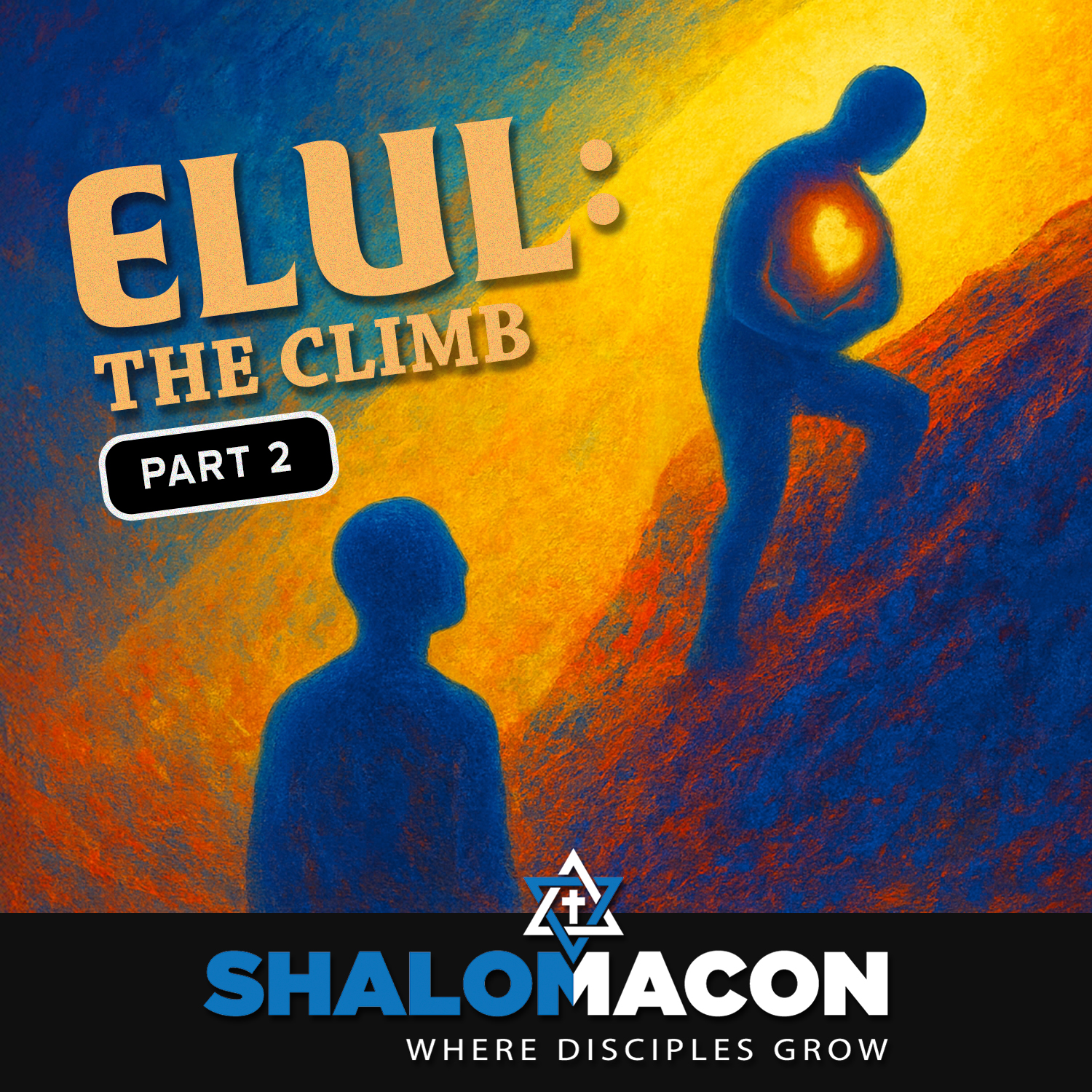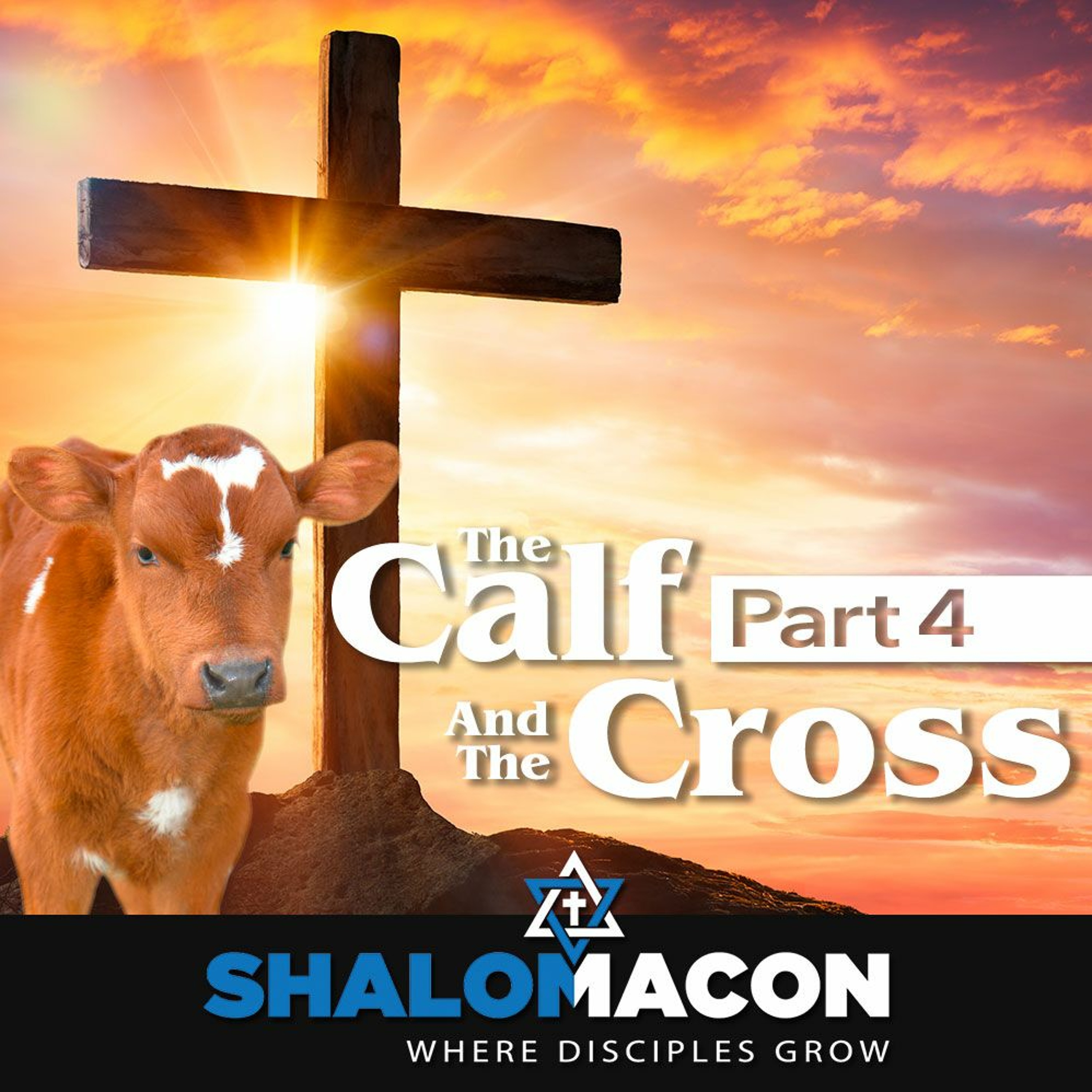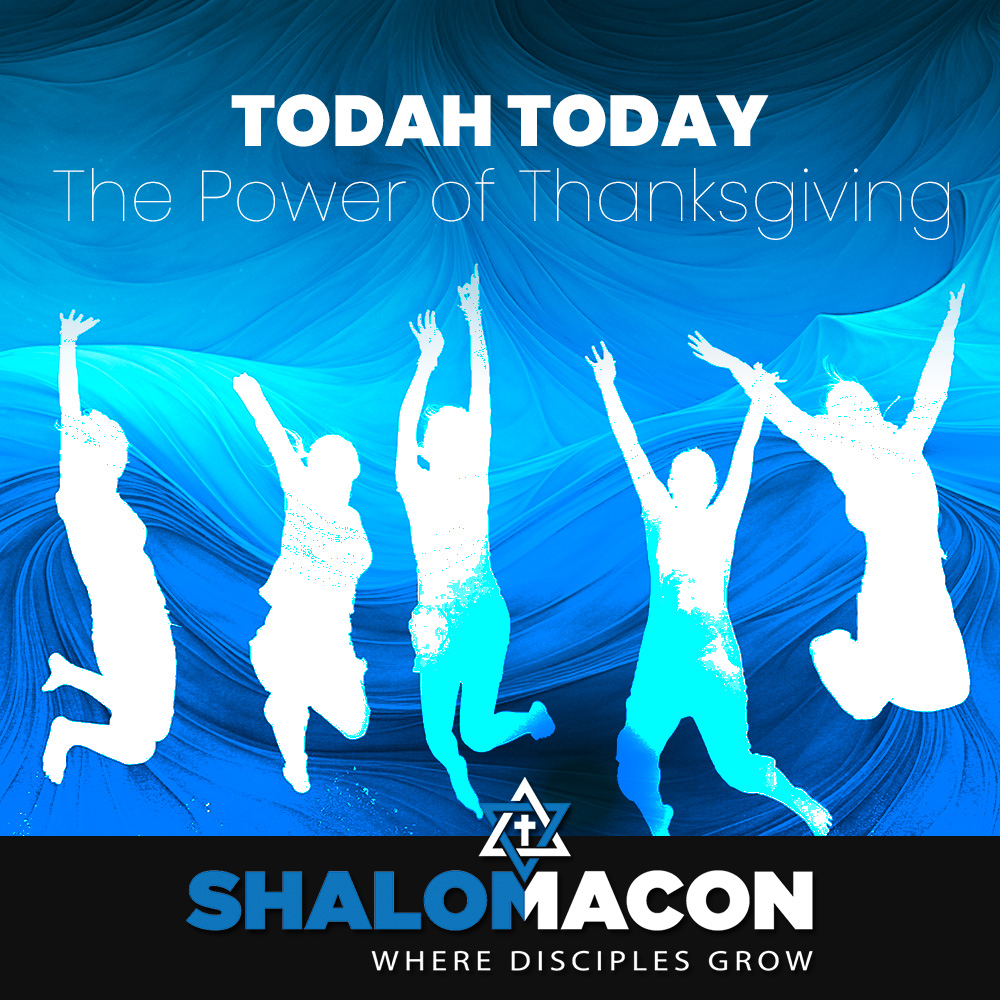Episode Transcript
[00:00:00] NAV already indicated. I hope you're in the process, in the ten days, the days of awe. And I hope that you're expecting something, a very real process of gratitude, expectation, repentance, assessment, correction. All of those things are what I hope are going on for you. And you might say, But Rabbi, we did tashlik last Sunday. I mean, we threw our rocks. We cast it all off. I mean, we're making good choices. We set a new course. We repented. We're reconciled. We're not looking back. And that is so beautiful. And last week was such a being at the river. And this just hearing the stories, that is a tremendously valuable exercise. But you do remember the repentance road that we're on, right?
[00:01:14] The repentance road has the steps that say, stop sinning, regret the sin, vow to no longer commit the sin. And what's the last part?
[00:01:27] Vidui confession.
[00:01:30] To confess. And confession, my friends, that's where we are. That's where we are headed tomorrow night as we move into the confession parts of corporately, really and individually for Yom Kippur. That's a big part of those services. And that is a day that carries with it a biblical promise.
[00:01:54] A biblical promise. Leviticus 16.
[00:01:59] For on this day, atonement shall be made for you, to purify you of all your sins. You shall be pure before adonai. That's in the Bible, okay?
[00:02:13] A day that has a promise. And we don't want to come all this way and miss that, miss the last step on the road. We don't want to do that. So what do we do? Well, here's what we do. It's so exciting. We stand literally in the face of failure.
[00:02:34] Exciting, right? Who loves it?
[00:02:37] Who loves that we say these things? Ashamnu. Ashamu. We have sinned al hate. For the sin. For the sin. For the sin. In other words, for this failure. For this sin. For this, for this, for this. I love to fail, especially before the God of the universe, don't you?
[00:03:05] Well, the good news is, hopefully the failing is done. That part is completed. But now is the acknowledgement of it. Now is the correction through confession, but failure. There are a thousand great secular snippets I could give you about failure. One of my favorite ones comes from a Canadian actress named Mary Pickford. I don't know who Mary is, but I will never forget her words when she says, you may have a fresh start at any moment you choose for this thing. That is called failing is not the falling down, but the staying down.
[00:03:49] But since this is a Messianic synagogue, messianic Jewish synagogue, we'll get away from Canadian actresses. And let me give you something from our brothers in Hasidus, from the Hasidic Jewish teaching. And I've talked to you about this before. The rope.
[00:04:05] The rope.
[00:04:07] The figurative illustrative, if that's a word. I think it is rope that connects your heart to the heart of God.
[00:04:17] We talked about it a lot at the holidays last week, I mean, last year. But every human being in Hasidic thinking you have this connector between you and God.
[00:04:33] But what if the rope breaks?
[00:04:40] What do we do?
[00:04:46] Well, the rope needs to be fixed. And do you know how do you fix a broken rope?
[00:04:54] You tie a knot in it.
[00:04:57] You tie it together. But here's the interesting thing about knots as it relates to this.
[00:05:05] In your rope, your broken rope, every knot that's tied the individual is drawn closer to God as the rope shrinks because the knots are knitting it together. You're drawn closer to God through the knots.
[00:05:25] Knots are those corrected, forgiven, atoned for things that are a part of your life and your rope.
[00:05:36] That's what we're doing here. There's no more beautiful picture than that for the High Holidays, actually.
[00:05:42] Honestly, we're here to tie the knot. You hear that phrase when people get married, right? No, actually, we're here to have our knots tied, our broken rope to have God bring them together, to solidify the reconnection, to define the at onement.
[00:06:03] The atonement of Leviticus, 1630.
[00:06:08] On that day, atonement will be made. So we take a deeper look at that rope. I'm going to do something I probably have never done before, and that's make a fishing analogy. But I think of myself in my younger days as a marlin. You ever seen marlin fishermen? Like, they get one on the line and that thing just goes and it's like fighting with Godzilla in the water or something. And the thing, they just let it run and they have to and the fish runs. I think, anyway, I've never been marlin fishing, but I think those big fish, they take the line. The fishermen could just start doing this all the time doing this, but what do they do? They let it run and run out of energy at some point. And then you have to start reeling it back in.
[00:06:59] When I was young, and probably sometimes still today, I'm like a marlin who took the bait, buddy, I was running as fast as I could, far and swimming, swimming furiously away from God. And you know what? God gives you a lot of slack.
[00:07:19] Did you know that? We call it free will. I call it slack.
[00:07:27] And you see, the interesting thing is when you got a big fish on the line and it's running and you what happens?
[00:07:36] The line breaks. That's why you don't do it.
[00:07:40] For some people, the fight is what they really, really love. It's the fighting. I assure you, the fish doesn't like it that much.
[00:07:48] But that's an analogy for us in our lives and our rope. It's a good thing God is not a fisherman, because when that marlin breaks the line, are you going to get him back?
[00:08:02] When that line breaks, when that rope, that tackle, when it breaks, that fish is gone.
[00:08:10] Thank God. That God is not a fisherman like that, because when your rope breaks, when your line breaks, when you're swimming furiously and you run out of energy, you are not actually lost. If you are willing to take your rope back to God and say, would you tie a knot in this? Would you reconnect me? And what? He always will.
[00:08:43] It's the beauty of repentance.
[00:08:46] He always will if we bring it to Him.
[00:08:54] Shabbat Shuvah says stop swimming away.
[00:09:01] Stop the fight.
[00:09:04] Return, it says, Return, O Israel, to the Lord your God, for you have stumbled because of your iniquity.
[00:09:12] In other words, stop swimming, stop running. You've done the work of soul searching, of repentance, of repair, of letting go and casting off and throwing rocks. Now bring me your rope and let me fix it, he says.
[00:09:32] So how do we tackle the shortcomings? Darren, put that picture up for me real quick. We spent a lot of time this year walking down that repentance road. Did you do that? Did you uncover areas needing work? You know what that is? That's a trash can, complete with someone's half eaten breadcrust there. But that's the trash can from Amerson River Park last Saturday after Tashlik. And you know what those are?
[00:10:01] Anger bags.
[00:10:03] Those are empty bags that contained terrible things in people's lives that were emptied out and thrown away in the garbage can. I hope that since last Saturday, you haven't gotten a new bag and stocked it full of big, ugly, heavy, dirty rocks. But that was a beautiful picture. Who knew God could make a dirty old trash can beautiful?
[00:10:29] And I was so happy to see it. But on this day, tomorrow night and Monday, we confront one more big rock.
[00:10:41] Big rock? Like 500 pound rock.
[00:10:48] It's the last barrier to the freedom of a new year and a clean slate. It's actually the culmination of the process, the time at which we're going to come and bring our cumulative confessions, our failures, our mistakes before the God of the universe on that uniquely holy calendar day. And you say, God, I failed.
[00:11:12] You could say I made bad choices, I have made mistakes that I can't change, but I want to correct the future. So here's what's the deal with this rock. Imagine you've been on the road, you've been on the repentance road, you've done all this work. You've walked through this valley, through this canyon, and you can see just ahead is what you've been working for, the beautiful sunset and whatever it is. But to get there, you have to cross right through this narrow valley.
[00:11:44] It's the only way there.
[00:11:47] And what's standing and blocking the path through the valley is that 500 pound rock of mistakes.
[00:11:59] It must be dealt with. You can't climb it, you can't go around it, it must be confronted.
[00:12:10] And we can call these sins.
[00:12:14] But I read this on Aces, which is an Orthodox Jewish website, and I want you to listen to it. I talked about this in one of the teachings about on the repentance road. But we could call this rock all of our sins. Okay?
[00:12:31] But a major part of the Yom Kippur service is reading this exhaustive list of our sins. We actually do it five times and it's the same words and the same stuff. It is an exhaustive, exhausting list. ALHE chenu neha. For the sin I have committed, we have committed before you. Al hate. Alhae, alhae. Alhait. But the better translation is for the mistake.
[00:13:02] For the mistake. The Hebrew word het. It means to miss the mark, right? To be off a mistake. And mistakes are manageable. You don't learn really that often from sins. You don't learn that's like this major moral failure or rebellion. These things, this rock is all the culminated collective. I failed and I can't go forward till I deal with this.
[00:13:31] That's Yom Kippur. What to do? The first inclination quit. Just turn around, say, I don't have to do that. Or I'm just the way that that's just the way I am. We could pull the C. S. Lewis line out and say if you're walking down the road and you realize it's the wrong road, it doesn't do you any good to go forward, right? This is the path, so you gotta go forward. So what do you do?
[00:14:02] You speak to the rock.
[00:14:05] Remember that story in numbers. It's a different context very much.
[00:14:13] Moses was told, speak to the rock, right? And water will come out of it. What's the point? We when we engage in what we will do together, we are speaking to the rock. The 500 pound rock that blocks your path with each meaningful thought through pondered over confession, rather than for the sin I commit against you. For this. For the sin I commit to get up. Come. When can we sit down?
[00:14:47] This is so boring. I hate this.
[00:14:51] Which is how I was when I was a teenager.
[00:14:56] You can't be that way.
[00:15:00] For each thought through mistake and failure, you speak to the rock. Each confession, each declaration that our rope is broken, that we need God to retie the knot. It is as if God is then striking that rock for you with each word, a spiritual little hammer and chisel that God al hate. For the sin I committed against you, chisel piece of the stone breaks. For the sin I committed against you, God a piece of the stone breaks.
[00:15:38] Every word, every heartfelt thing, every mistake you made, everything you did to somebody, everything, all of it.
[00:15:47] Chisel. The stone breaks.
[00:15:51] You are speaking. God is doing. And the path is opening for you.
[00:15:58] You get it?
[00:16:01] We can't break it up alone. We can't. We just can't. This is a thing we cannot do alone. We can do many of the exercises that we've done up to this point alone. But this one's different. And that's why there is a day. And does that mean that you'll result in eternal perfection from that point forward?
[00:16:22] No, but that's not actually the goal. But I will tell you something. In liturgy, when we say the shama shama yisrael Aronaya lohenu Aronaya chad, we say that, but we never say the second line that's always said under in an undertone baruch shim kivod mohut.
[00:16:39] But not on Yom Kippur.
[00:16:42] Tomorrow night, when we say the shema shamai eloenu adonaya baru shem. Why? Why do we do that?
[00:16:56] We do that because at that moment, for that day on Yom Kippur, we join with the angels washed in perfection. That's the way God said it. Your sins will be atoned on that day. And so we join the angelic host, declaring the whole shema audibly. Our slate is clean.
[00:17:21] And so, no, you probably won't be perfect forever, but you could start tomorrow with the declaration, and we'll do it together as we continue to speak to the rock. Psalm 51 a broken and contrite heart. O God, you will not despise.
[00:17:41] What kind of heart? The perfect heart that never makes any mistakes and can march up to the 500 pound rock and just say, pardon me, you can't do it.
[00:17:53] God desires this. Maybe not every day. I'm sorry, I love the psalms, but I don't want to, every single day have a broken and contrite heart. Sometimes I want to have a heart full of joy and celebration.
[00:18:10] But on this day, God delights in a broken and contrite heart that will allow him, through your words, to chisel away the stone. A heart willing to try, a heart recognizing failure and humility. A heart that acknowledges mistakes. A heart that says, as Aish said earlier, I blew it, and now you can retie it.
[00:18:39] Here's my broken rope, God.
[00:18:44] And once that final rock is shattered, you have that rope and you bring it. And this is giving such context to seek the Lord while he may be found. Call upon him while he is near. Let the wicked forsake his way, the unrighteous man his thoughts. Let him return to the Lord. May he have compassion on Him and to our God, for he will abundantly pardon. The knots in your rope are the reminders of mercy in your life. They really know this shabbat of repentance we are taking this last moment. It just so happens to come before the day of Yom Kippur to identify the last things and to be willing to engage with the text. Rabbi Levy said great is repentance, for it reaches up to the throne of glory, as it is written Shuvah, O Israel, return to the Lord your God. Reish laquish. Great is repentance, for by virtue of it, one's intentional sins are regarded as mere mistakes. Listen to that. One's intentional sins are regarded as mere mistakes. God transforms and reties and reconnects. And I'm certain that for everyone in this room, there are breaks in your rope. I know there are. There are many, many bricks in my rope.
[00:20:07] And, you know, the pessimist will think, yeah, it's neat, beautiful, but just going to fail again.
[00:20:23] All right, I'll do it. So what? That's not it.
[00:20:27] Yeah, you might fail again, but you reconnected for a time, hopefully for all time.
[00:20:37] But you got a naughty rope. And if your rope looks like mine, it probably has some places where God many, many times had to tie it together. We won't talk about this one. It's a really big one.
[00:20:57] I have a lot of those. And you could say, what an ugly rope. I want just a straight, smooth rope.
[00:21:06] The only one of those that ever existed on this earth.
[00:21:10] Straight, smooth rope.
[00:21:13] But I'll tell you the other thing about hasidis that I love. There's another, and I've mentioned this many times before, this perspective on failure, this perspective on your knots.
[00:21:26] Have you heard me say every descent is for the sake of a future ascent?
[00:21:33] It's a beautiful way to look at your life rather than the fatalistic, I'm a failure, I'm a garbage heap person. Every descent is for the sake of a future ascent. And God can use them. And he uses the knots.
[00:21:46] He uses them. And I'll tell you something about the slick rope, the perfectly straight, beautiful rope. Let me tell you something. When life begins to pull that rope away from you, and it's just this straight rope with no knots, what happens right through. But not this rope. Not this imperfect tied to God knotted rope. When someone pulls on it, it might slip, but my hand catches wear right here, and it holds me. And even if I get past that one, there's another one, and it holds me. And what do I say? I say, oh, my God, I remember when you tied that. I'm not going back there again.
[00:22:33] And it keeps you.
[00:22:36] Every descent is for the sake of a future ascent.
[00:22:42] So as I say so many times, tomorrow we descend, and Monday night we ascend I did some rope research, okay? I so badly wanted it to be the case that when you tie a knot in a rope, it strengthens the rope. Like it gets stronger. I wanted that to be and guess what?
[00:23:14] It's not true. So my whole message fell apart. So that shabbat. Shalom, actually, it perfectly made the point.
[00:23:25] It perfectly made the point I want to make. You can't do this on your own. You were born with a beautifully straight, slick, wonderful rope. And you know, when you first knot happened, probably the first lie you told your parents or hit one of your siblings or who knows what happened, but we don't maintain a straight rope forever. You can't.
[00:23:49] You are, in some sense, prone to failure, which is why this must be strong in its connection to God and regularly, regularly repaired through repentance mercy ultimately forgiveness and atonement. I am my beloveds and he is mine.
[00:24:13] And so he ties the knot with us.
[00:24:19] Paul said this my grace is sufficient for you, for power is made perfect in weakness. Therefore I will boast all the more gladly in my weaknesses, so that the power of Messiah may dwell in me for Messiah's sake. Then I delight in weakness, in insults and distresses, persecutions, calamities. For when I am weak, then I am strong.
[00:24:45] So don't be afraid of your naughty old rope.
[00:24:49] It's a good rope to have.
[00:24:53] And if it looks like this that is your current rope.
[00:24:59] You need to bring it and you need to say the words and you need to let God knot it back together. Yeah.
[00:25:10] We're rounding this final turn. And this is the God we serve who's waiting to receive you and be your focus.
[00:25:17] So who is a God like you pardoning iniquity and passing over transgression for the remnant of his inheritance. He does not retain his anger forever because he delights in steadfast love.
[00:25:29] He will again have compassion on us. He will tread our iniquities underfoot. He will cast all of our sins into the depths of the sea. So let us complete the repentance road journey we started together tomorrow as we enter the days of Atonement the day thank God of Atonement. It Shabbat. Shalom.



